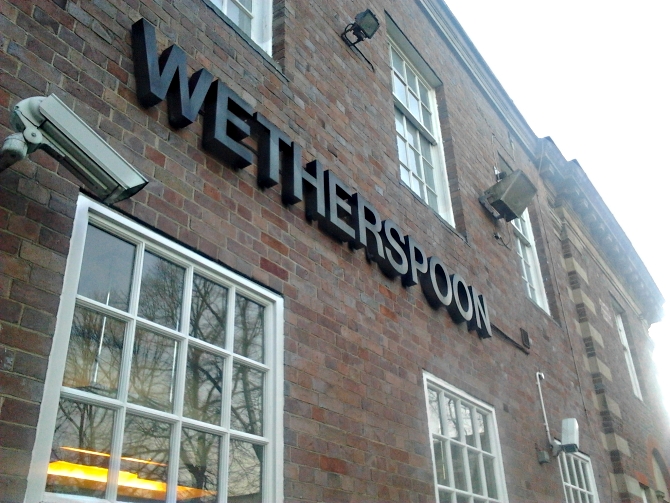Although the recession is over and consumers are able to spend more freely as a result of improvements in wage growth, the pub industry continues to struggle with closures reported every week. This has meant that vigilance is required regarding new openings and careful property portfolio management – something proven by the third quarter report from leisure chain J D Wetherspoon Plc.

In the 13 weeks to the 27th April 2014, like for like sales rose by 6.2 per cent, while total sales increased by 10.9 per cent. In part, this is due to the firm’s policy regarding outlet closures and openings, as it aims to move into new areas in which pubs are in high demand whilst closing loss-making pubs in order to streamline operating costs.
As a result of this policy, a total of 28 new pubs have been opened around the country since the start of the present financial year, while only 3 properties have been disposed of. Furthermore, the brand intends to continue to open outlets in earnest, having set a target of 45 new openings in total by the end of the financial year.
However, perhaps as a response to the still-contentious issue of business rates, Wetherspoons intends to somewhat slow the pace of growth during the next financial year. While it intends to open between 30 and 40 new pubs, this is somewhat less than this year’s target.
The company expresses its desire to remain cautious about the future, with a statement saying; “As previously indicated, the biggest dangers to the pub industry are the VAT and business rates disparity between supermarkets and pubs and the continuing imposition of stealth taxes, such as the late night levy and increased fruit/slot machine taxes.
“However, the Company welcomes the recent reduction in excise duty for beer; in general, we anticipate that taxation and input costs will continue to rise.
“As a result of the slowdown in sales growth in recent weeks and our strong performance in the final quarter of last year, combined with the slightly unpredictable impact of the World Cup, the Company retains an element of caution about the exact outcome for the final quarter, but anticipate a reasonable outcome for the year as a whole.”
It certainly seems that caution is a wise stance to take, as the government has still not established a firm forward-going decision regarding business rates. Furthermore, despite numerous figures from the pub industry throwing their support behind the Jacques Borel VAT Club’s proposal to level the playing field between supermarkets and pubs by charging an equal amount of alcohol tax, the government continues to largely ignore the issue.
While retailers actively seek rapid expansion in the majority of cases, the pub industry is yet to reap the benefits of recovery felt elsewhere in the British economy. However, with sales and profits beginning to rise at Wetherspoons, perhaps there is a light at the end of the tunnel for the industry as a whole.